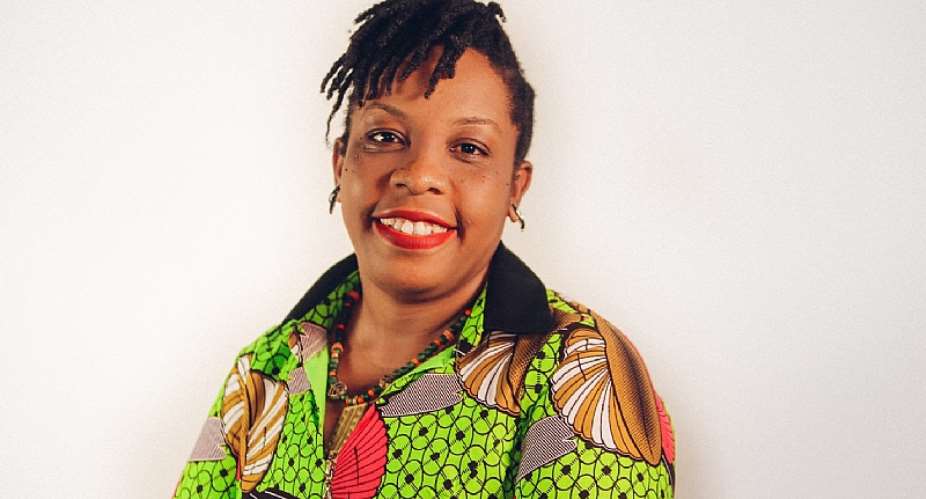“I think if I die, I will feel at peace for the first time in 9 years because I am really tired,” this was the opening statement of Yaa, a seamstress in Accra, whom I have been providing emotional support to for a few months now.
She's going through the challenging tides of infertility and yes, for 9 years now! She is a pastor's wife and feels every woman in the church who has a child avoids her because she has none. She wants to take her life. She is depressed. She has become suicidal!
Truth is, she is not alone. In the past two years, I have heard similar stories from women (and men) who are going through mental torture as a result of infertility or pregnancy-related challenges and have consequently become suicidal.
Some of the experiences, which I choose to name Pregnancy Tales are: trying unsuccessfully to have a child, miscarriages, pre-term birth and loss, pre-term birth and NICU experiences, postpartum depression, losing a spouse through childbirth, abandonment by a partner during pregnancy. Have you or anyone you know gone through such an experience or perhaps are currently going through it- you need to pay attention to their mental state now!
The issues of infertility and pregnancy-related challenges continue to be one of the major causes of depression in Ghana. Depression, when untreated can lead to serious mental health disorders such as the suicidal thoughts Yaa is experiencing currently.
In Ghana, like many parts of Africa, the effects of Pregnancy Tales on the society has not fully been grasped as a mental health issue which needs to be addressed. Mental health continues to be perceived as the preserve of those who are engaged in narcotic drug abuse and, especially for women, marital challenges. It is essential for us to begin conversations around Pregnancy Tales and its obvious, yet overlooked relationship with mental health.
Unfortunately, we, as a society, contribute immensely to the mental health state of such persons through stigmatization of infertility, gross insensitivity to couples grieving the loss of babies, unrealistic expectations of men who lose wives through childbirth to be strong and a general lack of knowledge about emotional and psychological support for such persons. This can create deeper psychological scars that are more difficult to treat.
I have, however, come to appreciate and understand from mental health experts that psycho-social problems stemming from infertility and pregnancy-related challenges, often cause deep grief and depression.
Depression, from whichever source, requires some form of psycho-social counseling. Despite this need in Ghana, a huge number of these psycho-social problems go untreated because treatment typically focuses on the medical aspects of the Pregnancy Tale, with persons either oblivious of the psycho-social implications or clueless about treatment options.
As we commemorate Mental Health day, under the theme, Mental Health Promotion and Suicide Prevention, let's create more awareness about the ever-existent but often ignored relationship between Pregnancy Tales and Mental Health.
Let's be more sensitive to couples and persons going through challenges with infertility and pregnancy-related issues, let's provide emotional support (not counter it) to them and finally, let's encourage them to seek professional help from a trained psychologist.
Together, we can improve mental health for all persons with Pregnancy Tales.
–
The writer is the founder of the non-profit, Live, Move, Have your Being
(www.lmbgh.org)





 We’ll no longer tolerate your empty, unwarranted attacks – TUC blasts Prof Adei
We’ll no longer tolerate your empty, unwarranted attacks – TUC blasts Prof Adei
 Bawumia donates GHc200,000 to support Madina fire victims
Bawumia donates GHc200,000 to support Madina fire victims
 IMF to disburse US$360million third tranche to Ghana without creditors MoU
IMF to disburse US$360million third tranche to Ghana without creditors MoU
 Truck owner share insights into train collision incident
Truck owner share insights into train collision incident
 Paramount chief of Bassare Traditional Area passes on
Paramount chief of Bassare Traditional Area passes on
 Two teachers in court over alleged illegal possession of BECE papers
Two teachers in court over alleged illegal possession of BECE papers
 Sunyani: Victim allegedly shot by traditional warriors appeals for justice
Sunyani: Victim allegedly shot by traditional warriors appeals for justice
 Mahama vows to scrap teacher licensure exams, review Free SHS policy
Mahama vows to scrap teacher licensure exams, review Free SHS policy
 Government will replace burnt Madina shops with a new three-story, 120-store fac...
Government will replace burnt Madina shops with a new three-story, 120-store fac...
